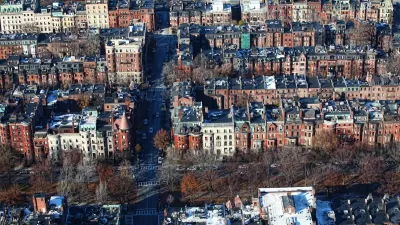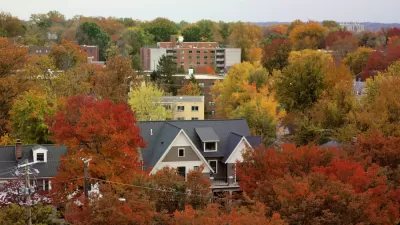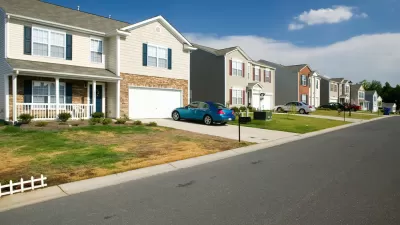The monthly costs—mortgage payments, property taxes, and insurance—of a typical low-end home in the Boston region has reached $3,600 a month. A typical home costs $5,000 a month.

A recent study of the Greater Boston housing market data from the past year reveals the consequences of rising housing costs in the region, namely stress for renters and fewer potential homebuyers able to cover the cost of mortgage payments.
The “combination of record-high house prices and sharp increases in mortgage interest rates has greatly reduced the number of renter households that can afford the typical home in the region―or even the typical low-end home,” writes Daniel McCue to summarize the findings of the “Greater Boston Housing Report Card 2022,” published by the Boston Foundation.
The findings also note the rising cost of homes in the region is of particular significance in Black and Hispanic households, “which threatens to extend significant existing racial and ethnic inequities in the region’s housing market.”
According to the study, asking rent increased by 11 percent in the region over the past 12 months. Things aren’t much better on the homeowner market: “At last measure in September 2022, the value of a typical home in the Boston metro area had risen to $652,000, which is $57,000 higher than a year ago,” writes McCue. The rising mortgage interest rates is making it tougher to cover the cost of mortgage payments, even for people who could afford to buy a home. “Between September of 2021 and September of 2022, interest rates on a 30-year mortgage more than doubled, rising from 2.9 percent to 6.11 percent. This, in combination with the rise in home prices, lifted monthly mortgage payments on the typical home up $1,400 per month over the past year to $3,800 by September 2022,” according to the article.

Maui's Vacation Rental Debate Turns Ugly
Verbal attacks, misinformation campaigns and fistfights plague a high-stakes debate to convert thousands of vacation rentals into long-term housing.

Planetizen Federal Action Tracker
A weekly monitor of how Trump’s orders and actions are impacting planners and planning in America.

Chicago’s Ghost Rails
Just beneath the surface of the modern city lie the remnants of its expansive early 20th-century streetcar system.

Bend, Oregon Zoning Reforms Prioritize Small-Scale Housing
The city altered its zoning code to allow multi-family housing and eliminated parking mandates citywide.

Amtrak Cutting Jobs, Funding to High-Speed Rail
The agency plans to cut 10 percent of its workforce and has confirmed it will not fund new high-speed rail projects.

LA Denies Basic Services to Unhoused Residents
The city has repeatedly failed to respond to requests for trash pickup at encampment sites, and eliminated a program that provided mobile showers and toilets.
Urban Design for Planners 1: Software Tools
This six-course series explores essential urban design concepts using open source software and equips planners with the tools they need to participate fully in the urban design process.
Planning for Universal Design
Learn the tools for implementing Universal Design in planning regulations.
planning NEXT
Appalachian Highlands Housing Partners
Mpact (founded as Rail~Volution)
City of Camden Redevelopment Agency
City of Astoria
City of Portland
City of Laramie





























